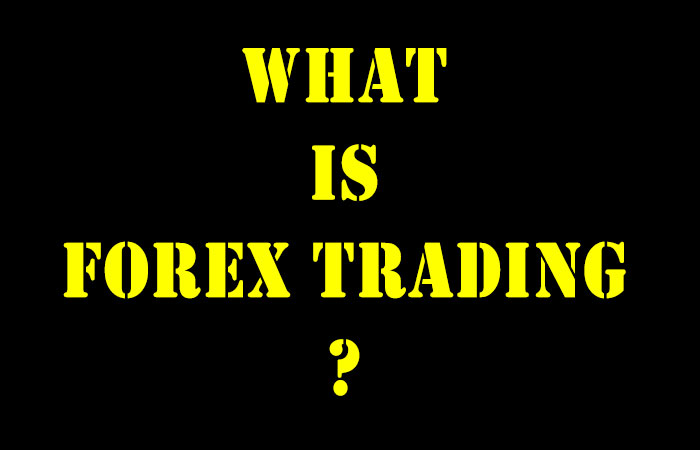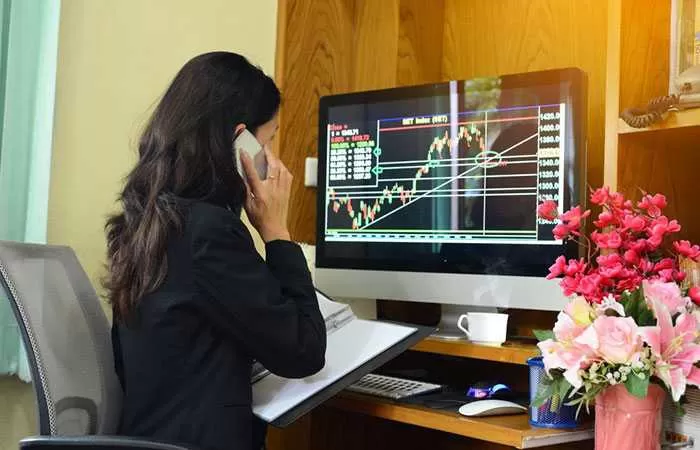
Forex, short for foreign exchange, is a decentralized market where currencies of different countries are traded. The foreign exchange market determines the relative values of different currencies, which can be bought and sold in exchange for one another. It is the largest financial market in the world, with an average daily turnover of approximately $6.6 trillion. Forex trading allows individuals to speculate on the fluctuations of currency exchange rates, as well as facilitate international trade and investment.
You trade currencies in pairs
In forex trading, currencies are always traded in pairs, as the value of one currency is relative to another. The most commonly traded currency pairs include EUR/USD (Euro/US Dollar), USD/JPY (US Dollar/Japanese Yen), GBP/USD (British Pound/US Dollar), and USD/CHF (US Dollar/Swiss Franc), among others. When you trade a currency pair, you are essentially betting on the price movement of one currency against the other. By comparing the value of the two currencies, you can determine the exchange rate and make informed decisions about buying or selling a currency.
Forex trading is leveraged, most of the time
Yes, that's correct! Leverage is a common feature in the forex market and it allows traders to control larger positions with a smaller amount of capital. This means that a trader can magnify their profits by taking advantage of small price movements in the market. For example, if a trader has a leverage of 1:100, they can trade $100,000 worth of currency by putting down just $1,000 of their own capital. However, it's important to note that leverage also magnifies losses, so it's crucial for traders to understand the risks and use leverage carefully. The use of leverage in forex trading is considered high risk, and it's not suitable for all investors. Before using leverage, it's important to educate oneself about the risks involved and have a solid understanding of the market.
You must never trade without a stop loss
A stop loss is a type of order that is placed with a broker to sell a security when it reaches a certain price. The purpose of a stop loss is to limit the potential losses on a trade by automatically closing the position when the price reaches a predetermined level. By using stop losses, traders can manage their risk and prevent large losses in case of unfavorable price movements.
A stop loss order is typically set below the current market price for a long position, or above the current market price for a short position. When the security reaches the stop price, the stop loss order becomes a market order and the position is sold. This helps to minimize the potential loss on the trade.
It is important to note that stop loss orders do not guarantee that a trade will be closed at the desired price, as market conditions can cause slippage, or the difference between the desired price and the actual price the trade is executed at. Additionally, rapid price movements can cause a stop loss order to be triggered and result in a larger loss than intended.
In summary, stop losses can be a useful tool for managing risk in trading, but it is important to use them with caution and to understand their limitations.
In forex Scalping will wipe out your account sooner than you think.
Scalping is a high-frequency trading strategy that involves opening and closing positions within a short time frame, usually within a few minutes or even seconds. While scalping can potentially lead to quick profits, it also comes with high risks. The tight stop loss and take profit levels that are typically used in scalping can result in rapid and significant losses if the market moves against the trader's position. Additionally, scalping requires constant attention and rapid decision making, which can lead to emotional and impulsive trading decisions.
In conclusion, scalping can be a high-risk, high-reward strategy and it is not suitable for all traders. It is important to thoroughly understand the risks involved and to have a solid trading plan before attempting to scalp in the forex market.
In forex Swing trading and position trading are the most popular and profitable trading styles
Swing trading and position trading are two popular trading styles in the forex market. Both styles aim to capture medium to long-term market trends, but they differ in terms of holding period and risk tolerance.
Swing trading involves holding positions for several days to several weeks, looking to capture intermediate market movements. This style is suitable for traders who have a medium-term perspective and can tolerate a moderate level of volatility.
Position trading, on the other hand, involves holding positions for a longer period of time, typically several weeks to several months, and aims to capture larger market trends. This style is suitable for traders with a long-term perspective who are willing to tolerate higher volatility and longer drawdowns in order to potentially capture larger profits.
Whether swing trading or position trading is more profitable depends on several factors, including market conditions, the trader's risk tolerance, and the trader's skill level. Both styles can be profitable if the trader has a solid understanding of the market, a well-defined trading plan, and a disciplined approach to risk management.
In forex You must trade only the money you can afford to lose.
This statement is a fundamental principle of responsible and successful trading in the forex market. Trading with money that you cannot afford to lose can lead to financial stress and emotional turmoil, and can often result in impulsive and poor trading decisions.
It is important to approach forex trading as a long-term investment, and to only allocate a portion of your investment capital that you are comfortable losing. This will help to ensure that you have the discipline to stick to your trading plan, even in the face of short-term losses.
Additionally, it is important to have a well-defined risk management strategy in place, which includes setting stop loss orders and using proper position sizing to manage your exposure to risk. This will help you to minimize the potential impact of any losses on your trading account.
In conclusion, only trading the money you can afford to lose is a key aspect of successful and responsible forex trading. By following this principle, you can help to ensure that your trading experience is enjoyable, profitable, and stress-free.
In forex There is no secret strategy that will guarantee you profits all the time
There is no single strategy or method that will guarantee profits in the forex market all the time. Forex trading is inherently risky and subject to a range of unpredictable market factors, including economic data releases, geopolitical events, and sudden shifts in investor sentiment.
While there are many strategies and approaches that traders can use to attempt to profit from the forex market, success ultimately depends on a combination of skill, discipline, and market knowledge. Profitable traders are those who are able to navigate the market's inherent uncertainty and volatility and consistently apply their trading strategy with discipline.
It is also important to understand that no strategy will be profitable 100% of the time. Every trader will experience losses at some point, and the key to successful trading is to minimize these losses and keep them within acceptable levels.
In conclusion, while there is no guaranteed path to profits in the forex market, a combination of market knowledge, discipline, and a well-defined trading strategy can help increase the chances of success.

Are women trades better than men?
There is no definitive research that shows that women consistently trade better than men or vice versa. Both men and women have the potential to be successful traders, and individual performance depends on a variety of factors, including experience, market knowledge, and risk management skills.
It is important to note that both men and women can face unique challenges in the forex market, and both can benefit from ongoing education and self-reflection. Women in particular may face gender-specific biases and cultural expectations that can impact their confidence and ability to succeed in a male-dominated industry.
Ultimately, success in the forex market is determined by a trader's ability to consistently apply a well-defined trading strategy and to manage risk effectively. Whether a trader is male or female is not a determining factor in their ability to be successful in the forex market.
In conclusion, the gender of a trader does not determine their success in the forex market. Success in forex trading depends on a combination of market knowledge, discipline, and a well-defined trading strategy.
Established in 2013, FamilyNeeds.net is connected to your lifestyle and everyday life. Publish reviews of your life, style, fashion and essentials.